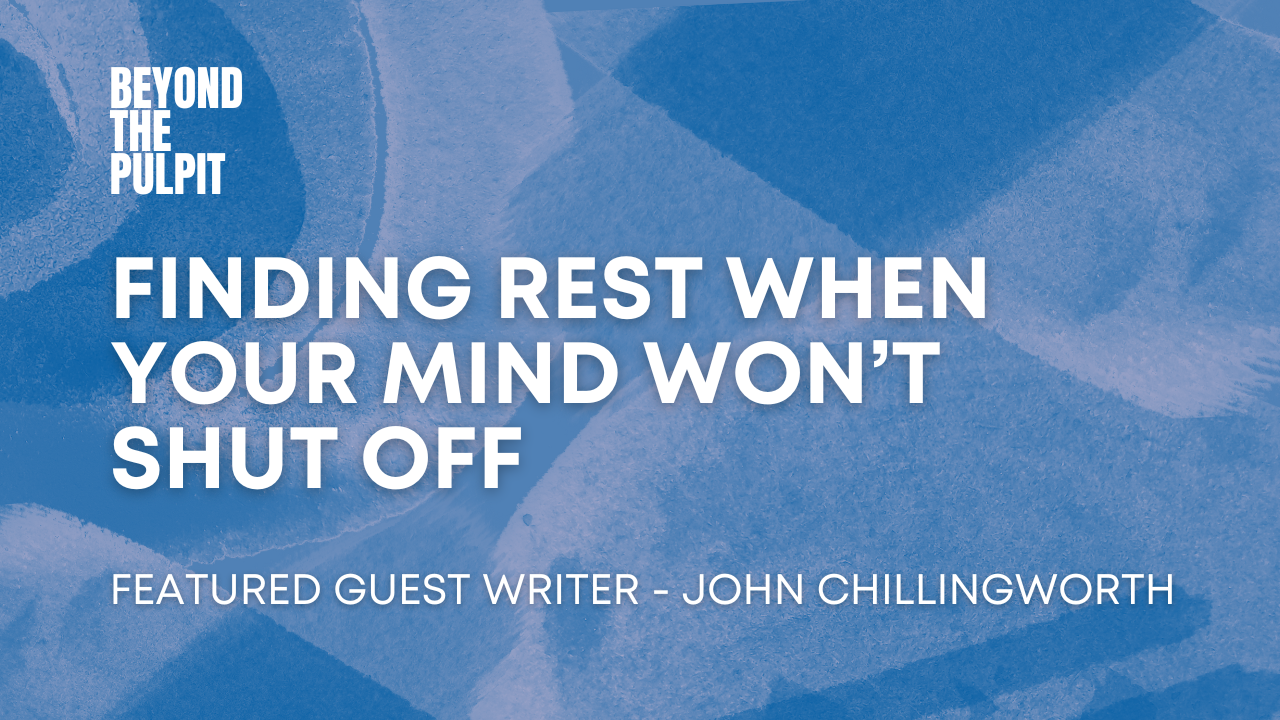Finding Rest When Your Mind Won’t Shut Off
It’s 2:11 a.m. and you’re tossing and turning. Your mind is running full speed through unfinished tasks, to-do lists, difficult conversations, unpaid bills, and that thing you said that you should have said differently. Your body is bone tired, but your brain goes into overdrive the moment you get under the blankets, and the lights go out.
I’ve been there too, and it’s in those sleepless nights that Psalm 4 has become my go to:
“Answer me when I call to you, O God who declares me innocent. Free me from my troubles. Have mercy on me and hear my prayer.” — Psalm 4:1 NLT
Psalm 4 is a Psalm of David: warrior, king, and poet. He is wide awake and calling out to God. Right from the first verse, he instructs us to do the same.
There’s something about nighttime that magnifies our fears. During the day, we stay busy. At night, the distractions are gone and the doubts in my head tend to take center stage.
David knew that feeling. Psalm 4 isn’t written from a place of calm; it’s written from distress. Yet, instead of spiraling deeper into anxiety, David redirects his racing thoughts toward God.
It’s not David saying that everything’s fine. It’s about bringing everything; the worry, the frustration, and the uncertainty into God’s transformative presence.
In his book, Honesty With God: Learning to Pray from the Psalms, Dan Schaeffer notes that verse 1 in the Hebrew is referring to a past experience when God had relieved David and declared him innocent. David was reminding God, and himself, that God had rescued him in the past and He would do it again. David has a history with God and so do we. God has helped us in the past and He will help us again. He is God, He is good, and He is for us. We should have confidence, as David did, that He can and will sustain us now as He did in the past.
I often think of the ninja when I read this psalm. The ninja were highly disciplined warriors of the night. A ninja didn’t panic in the dark; he trained in it and for it. He learned to quiet his breath, to stay calm, and to trust his preparation even when he couldn’t see the path ahead.
Psalm 4 calls us to ninja-like spiritual discipline. When the night feels overwhelming, we don’t surrender to chaos, we practice trust. We train our hearts to speak with God rather than wrestle alone. Over time, this becomes muscle memory. Faith becomes our go-to, not our reflective should-have.
Strength isn’t the absence of fear; it’s choosing the right response to it. My reaction in the natural might be to spiral out into anger and frustration. When I feel my chest tighten and my head start throbbing, I know that I need to pause, reset, and respond by turning to God.
Psalm 4 is the spiritual blueprint for that. David doesn’t wait until the situation is perfect to trust God. He chooses to trust Him in the middle of the storm, in the middle of the sleepless night.
“Don’t sin by letting anger control you. Think about it overnight and remain silent.”
— Psalm 4:4 NLT
Another translation puts it this way,
“Tremble with fear and stop sinning; Think deeply about this, when you lie in silence on your beds.”
— Psalm 4:4 GNT
David acknowledges the fear, but he chooses silence and surrender instead of sin and spiraling. This is discipline in action. I have done enough reacting to know that it typically doesn’t end well. I say and do things that I regret when I react. When I pause, quiet my thoughts, and turn to God I am in a heart posture to respond more appropriately.
Something beautiful happens by the end of the psalm. David’s tone shifts. The prayer that began with distress ends with peace:
“In peace I will lie down and sleep, for you alone, O Lord, will keep me safe.” — Psalm 4:8 NLT
David’s situation hasn’t changed. His enemies are still out there, and his problems haven’t magically vanished. But he has changed, because he’s brought it all before God. This reminds David who he is and whose he is. You can do this right now. Say it out loud: I’m (say your name here) and I’m the son (or daughter) of the Most High God. That feels amazing, doesn’t it?
This is the deep peace Scripture promises, not the absence of problems, but the presence of God in the middle of them.
The next time you’re awake in the middle of the night, try this:
Instead of replaying your worries, pray through them like David.
Instead of trying to control tomorrow, rest in the One who already holds it.
Instead of searching for peace in solutions, anchor yourself in God’s presence.
Our circumstances might not change overnight, but our souls can. Like David, we can lie down in peace. Not because everything is fixed, but because God is ours and we are His.

